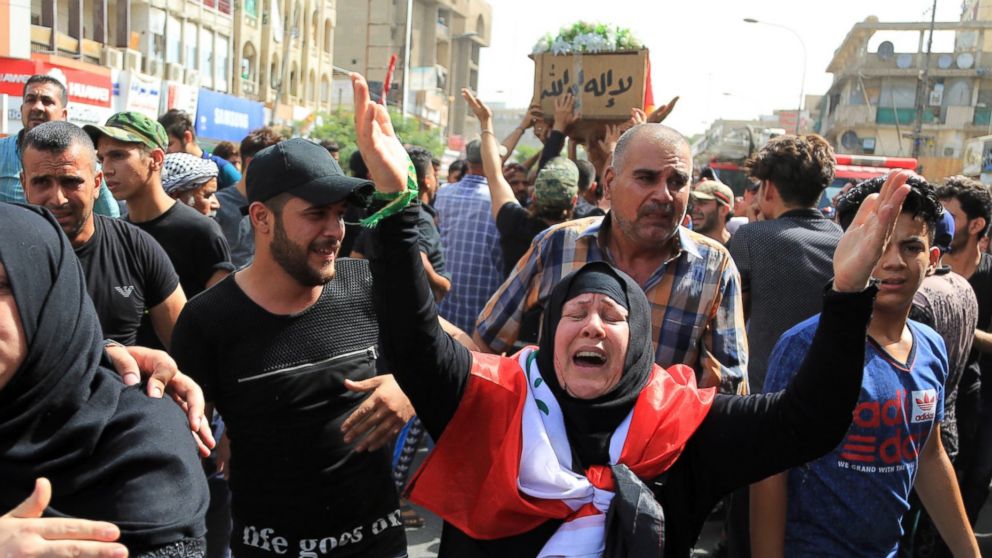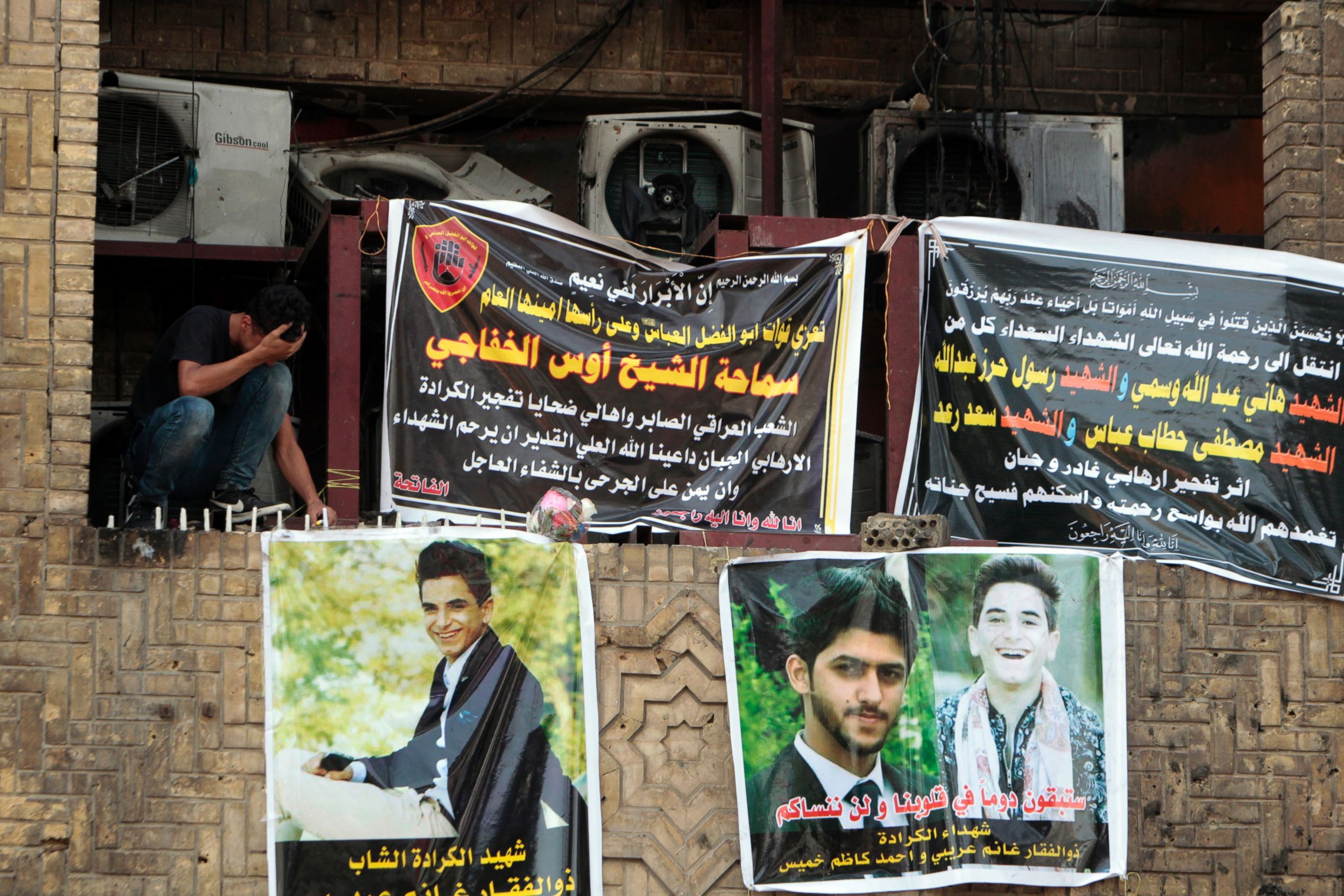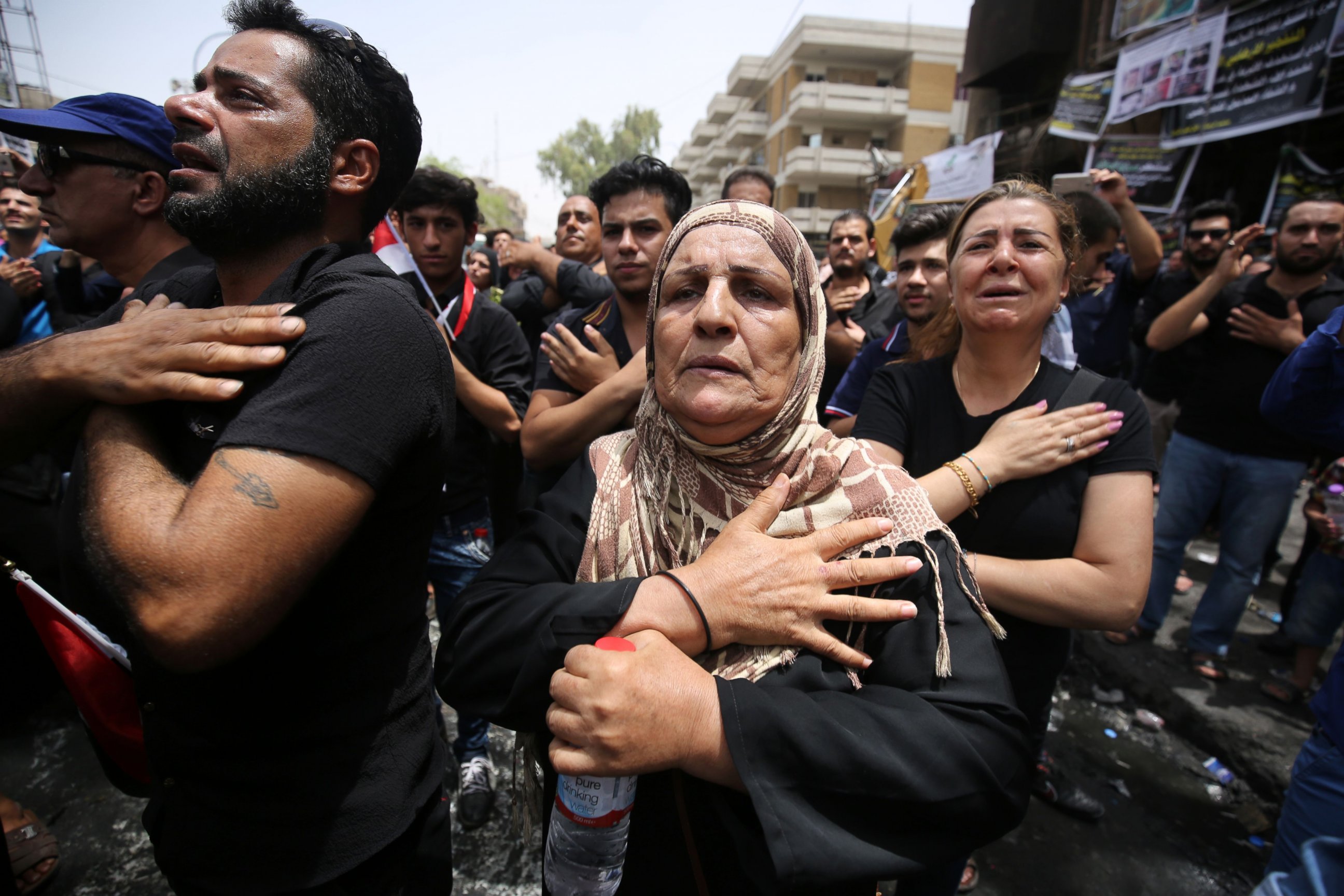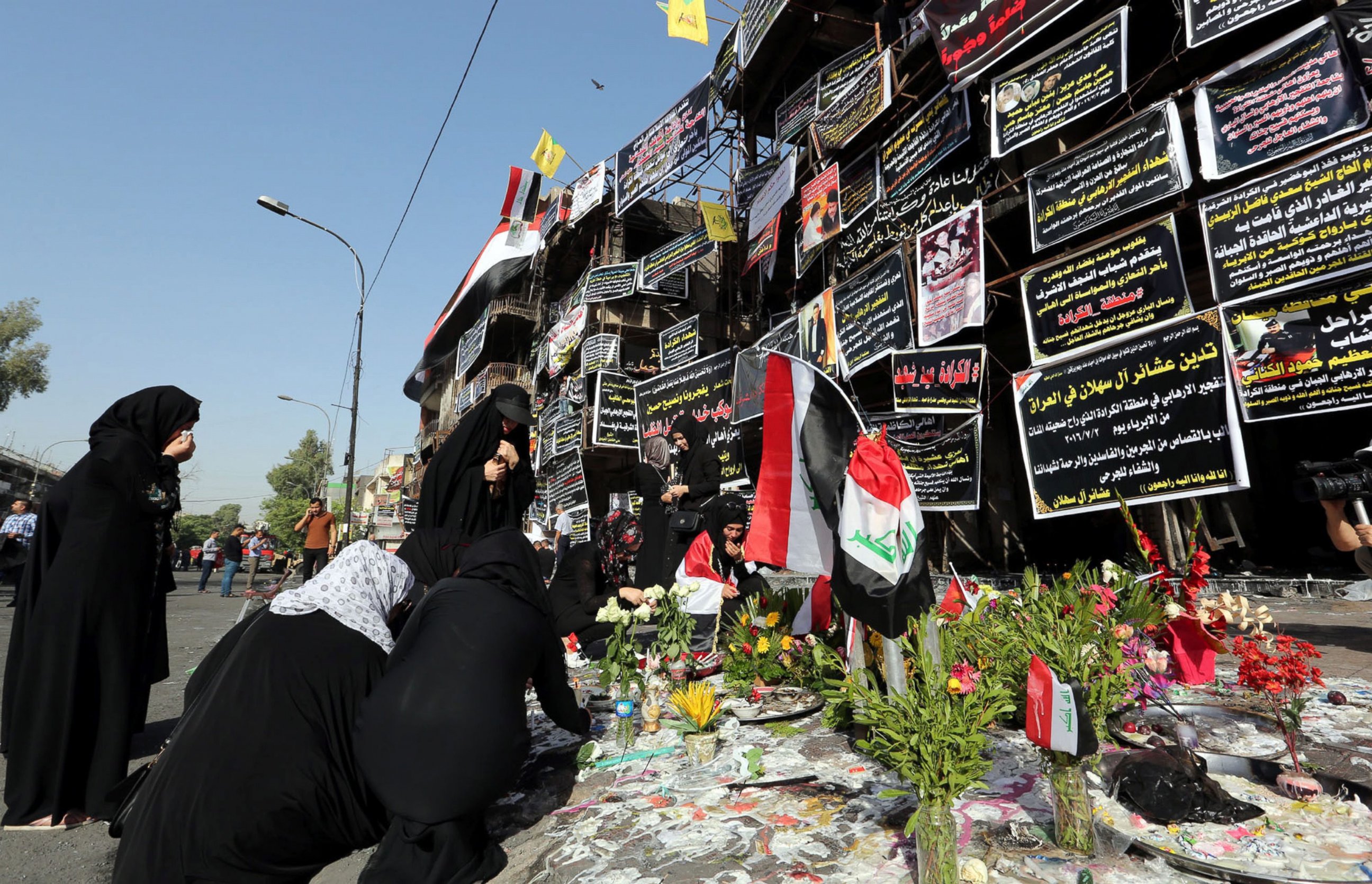One Man Is Tweeting Tributes to All 250 Victims of ISIS Attack
Mustafa al-Najafi felt compelled to remember the 250 people who died on Sunday.

— -- An Iraqi man living in London has created the hasthag #NotJustANumber to pay tribute to the 250 victims of a terror attack in Baghdad over the weekend.
Mustafa al-Najafi, 32, is an independent film producer who has has been living in the U.K. for 20 years. The day after the attacks, he started publishing pictures and personal details on people he claimed were among the victims.
“I wanted to show people that these victims were normal people like in Paris and Brussels,” al-Najafi told ABC News, adding, “If you look at pictures of the victims they’re all beautiful people, but the way the media portrayed them, they are just statistics.”

While al-Najafi said he has cross-referenced the pictures and details with his own sources in Iraq, ABC News cannot verify their authenticity.
After the terror attacks in Paris and in Brussels, millions worldwide used social media to pay tribute with hashtags such as #PrayforParis and #PrayforBrussels. However, the attacks in Baghdad have not received the same attention.

Al-Najafi does not consider himself a journalist but said he felt obligated to publicize intimate details of the victims.
“By giving details like what music they liked, I think I wanted people to relate to the victims, to think it could have been their daughter or their son,” al-Najafi said. “It wasn’t intentional, it was just a reaction after the attacks, and then the more I did it, the more I became conscious about it.”
The death toll following a bombing in Baghdad on Sunday has risen from 175 to 250, according to Iraq's minister of health, and another 200 were wounded. This was the deadliest attack by a single suicide bomber since the U.S. invasion of Iraq in 2003.
The bombing occurred during the final week of the Muslim holy month of Ramadan. It bore the hallmarks of ISIS, according to the AP, and followed a string of significant terrorist losses by ISIS on battlefields in Iraq and Syria.
